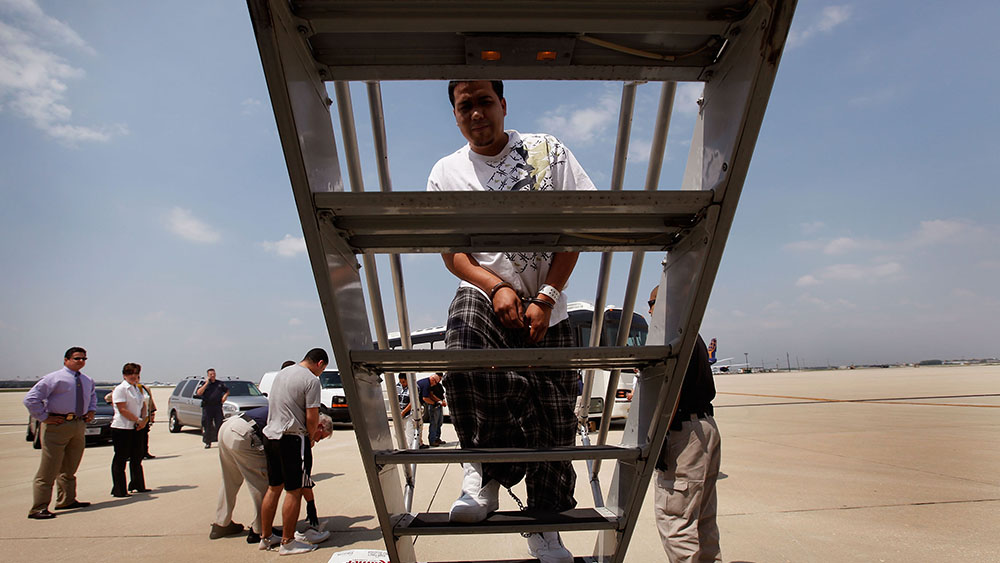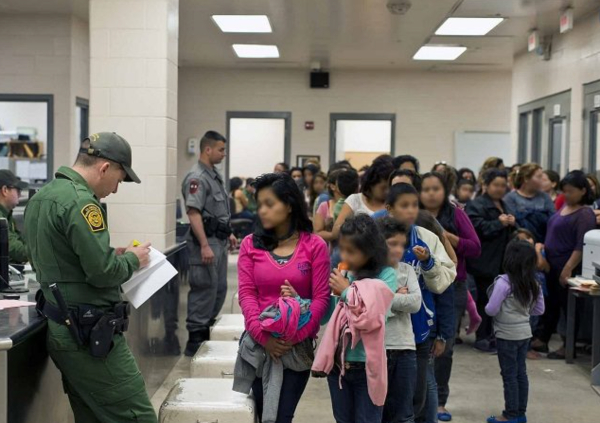U.S. remittances to Mexico reach 13-year low amid Trump’s immigration crackdown
08/26/2025 / By Willow Tohi

- U.S. remittances to Mexico fell by 16.2% in June, the largest drop in 13 years.
- Increased deportations and stricter immigration enforcement under President Trump are cited as key factors.
- Remittances represent 3.4% of Mexico’s GDP and are crucial for many Mexican families.
- A new 1% tax on certain remittances set to take effect in January 2026.
- Proponents see the tax as a way to fund border security, while critics warn of potential economic destabilization.
On August 22, the Bank of Mexico reported a stark 16.2% decline in remittances from the United States, marking the lowest level in over a decade. This significant reduction, which coincides with President Donald Trump’s stringent immigration enforcement, has raised concerns about the economic impact on both countries. The drop, the steepest since September 2012, underscores the far-reaching consequences of U.S. immigration policies and foreshadows potential new remittance taxes set to begin in 2026.
The sharp decline: 16.2% in June
According to the Bank of Mexico, remittances stood at $5.2 billion in June, a sharp decline from the previous year. This $16.2 billion decline comes after a decade of growth when transfers tripled from $23 billion to $64.7 billion between 2013 and 2024. Analysts attribute the decline to a combination of factors, including increased deportations, stricter immigration policies and economic conditions.
Factors behind the decline
Several key factors are contributing to the drop in remittances:
- Increased deportations: Despite not reaching the levels seen during the Obama administration, deportations under Trump have created a climate of fear among Mexican immigrants, leading many to save money in case of deportation.
- Stricter immigration enforcement: The Trump administration’s crackdown on illegal immigration has made it harder for Mexicans to enter the U.S. and for those already present to send money home.
- Economic conditions: The weakening U.S. dollar against the Mexican peso and the reluctance of some employers to hire undocumented workers have also played a role.
New York immigration attorney Marina Shepelsky said, “I think a lot of people are saving money now in case they’re deported, so they’re not sending anything home.” This sentiment is echoed across the Mexican immigrant community, where fear and uncertainty have led to changes in spending habits.
Economic impact and government responses
The decline in remittances has significant economic implications for both the U.S. and Mexico. Remittances represent 3.4% of Mexico’s GDP, according to the World Bank, and are a crucial lifeline for millions of Mexican families, particularly in lower-income communities.
In response to the decline, U.S. lawmakers are considering new measures to regulate and tax remittances. The Federation for American Immigration Reform (FAIR) estimates that the U.S. economy loses at least $200 billion annually in remittances. A July FAIR study noted that remittance funds often bypass the U.S. economy entirely and may inadvertently support criminal enterprises.
New taxation measures
In January 2026, a new 1% tax on certain types of remittances will take effect under the One Big Beautiful Bill Act. The measure, supported by Republicans, applies to transactions made through cash, money orders and cashier’s checks at providers such as Western Union and MoneyGram. Vice President JD Vance, who as a senator introduced the earlier WIRED Act proposing a 10% remittance tax, called such measures a “common-sense solution to disincentivize illegal immigration and reduce the cartels’ financial power.”
Proponents argue that the revenue from the tax will help fund border security and enforcement. However, critics, including Democrats, warn of potential economic instability. Rep. Jesús “Chuy” García of Illinois stated, “Such taxes would destabilize immigrant families and economies here and abroad.”
Emerging trends and future prospects
As the new policy nears implementation, new methods of money transfer are emerging to avoid U.S. taxation. Ana Valdez, CEO of the Latino Donor Collaborative, noted that informal delivery methods and Mexico’s Bienestar card system—promoted as a bank-to-bank transfer exempt from the U.S. levy—could undermine the remittance tax.
The drop in remittances also highlights the broader economic impact of U.S. immigration enforcement at home and abroad. Despite the significant decline, the future of remittance flows remains uncertain, with both the U.S. and Mexico grappling with the consequences of these policies.
Navigating the new landscape
The sharp decline in remittances to Mexico, driven by President Trump’s immigration policies and the impending remittance tax, underscores the complex interplay between immigration enforcement and economic stability. As both countries navigate these challenges, the impact on immigrant communities and the broader economy will continue to be closely watched. The coming months will reveal the extent to which these new measures will shape the future of U.S.-Mexico financial flows and the lives of those most affected.
Sources for this article include:
Submit a correction >>
Tagged Under:
big government, border security, debt collapse, deportations, dollar demise, economy, invasion usa, Mexico, migrants, money supply, national security, Open Borders, progress, Trump
This article may contain statements that reflect the opinion of the author
RECENT NEWS & ARTICLES
COPYRIGHT © 2018 BORDERSECURITY.NEWS
All content posted on this site is protected under Free Speech. BorderSecurity.news is not responsible for content written by contributing authors. The information on this site is provided for educational and entertainment purposes only. It is not intended as a substitute for professional advice of any kind. BorderSecurity.news assumes no responsibility for the use or misuse of this material. All trademarks, registered trademarks and service marks mentioned on this site are the property of their respective owners.



















